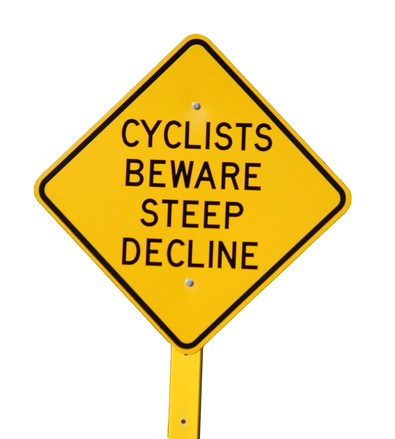Those who will suffer the most are investors in EPs that no longer have a high perceived (or even practical) value

Summary: People correctly point out that the institutional crisis at the EPO extends to aspects other than fake trials against staff and affects actual stakeholders, who have pumped billions of Euros into the EPO only to see EPs turn to dust (or their value diminish considerably)
THE EPO has been rather quiet after the latest meeting of the Administrative Council, but union-busting attempts are still being made, even a week or so before Christmas.
At
IP Kat, writers are still publishing friends' and colleagues' pieces. First it was
Bristows that 'hijacked' IP Kat for UPC propaganda (to reach a broader audience and promote an agenda); now it's EIP that sort of does the same with
Darren Smyth having a colleague over, at least with disclosure ("This Kat is grateful to his colleague Andrew Sharples"). As a reminder,
Smyth too is part of the UPC echo chamber and this article about the EPO was mentioned here briefly earlier this week. We will cover this today because the comments are noteworthy, more so than the article itself. As nearly everyone points out, the EPO behaves irresponsibly, as usual, probably in preparation for
spin about patent quality at the EPO.
"One could argue that there is no provision in the EPC to deny applicants the patent they are entitled to by staying the proceedings and that the EPO is therefore acting "contra legem","
one person wrote. Here is another take on it:
It is outrageous that the EPO is staying proceedings, whilst presumably still collecting renewal fees. I would love to know the legal basis for doing this.
The staying of opposition proceedings is perhaps even more absurd. This will simply mean that opposed patents will remain valid and enforceable unless and until a national court decides on their validity. If the EPO thinks the patents aren't valid the indefinitely staying opposition proceedings is achieving the exact opposite as it has completely removed an Opponent's opportunity to invalidate a granted European Patent.
"I can understand the EPO carrying on with searches for first applications and PCT filings but for other EP application,"
another person insisted, "it does not make sense. If the EU guidance finds its way into the EPC, applicants might wish to withdraw their application and the search fee will only be refunded if the search has not yet started. Further, with publication of the search report, the applicant would be required to respond to the objections raised, for which they would not have the benefit of knowing how the rules were to be changed."
"Jurisprudence is not highly esteemed in the EPO These days,"
noted another person. "The EU-Commission, responsible for the BioT Directive, the model for Rule 26 EPC, can dictate how Article 53b and Rule 26 EPC are to be applied. Separation of Powers?"
Well, that is long gone! Look at the EPO itself. It's a clusterfunk [sic]. Another person
wrote that "the evidence, moral argument or even legal basis for "Patent protection is not appropriate for such procedures and their products" appears nowhere. Wish I could say that this surprised me."
Lack of respect for actual laws is now a hallmark of everything that happens at the EPO, including so-called 'disciplinary procedures'. A comment from another thread claimed that the attack on actual "independent" judges (collective punishment) whom Battistelli does not like "is mere retaliation, not only from the president but also from the AC." Here is the full comment:
By no means I approve the transfer to Haar. But one thing has to be clear: it is mere retaliation, not only from the president but also from the AC.
Both have never accepted that the EBA has not acted in the way they wanted in the case of the suspended member.
It therefore remains a disgrace if the legislative and the executive try to interfere with the judicial. Separation of powers is a fundamental guarantee which should not be tampered with.
One of the members of the EBA who participated in the decision Art 23 has retired. Normally when a chairman of a BA retires, there is an article in the internal journal of the EPO (the Gazette). For this chairman, there is nothing. Is this a mere coincidence? I doubt it.
And going back to the other thread, another comment along the same lines:
It would be very interesting to read or watch an interview with the Administrative Council members presenting their vision(s) on the implementation of rule of law at the European Patent Office.
In particular, how the cornerstones of rule of law are seen by the Administrative Council:
Legality, i.e. legislative powers belonging to a representative body;
Balance/separation of powers, i.e. balance of legislative, executive, and judicial powers;
Independent judiciary, i.e. review of decisions and interpretation of law by an independent body.
The European Patent Office is in charge of taking generally binding decisions for the territory of 38 European countries, which implies adherence to rule of law as a fundamental principle of governance.
"The European Patent Office is in charge of taking generally binding decisions for the territory of 38 European countries," says the key part, yet not many people --
certainly not the German media -- ever bother reporting about the many scandals. A comment posted in
The Register offered the following advice to EPO staff (similar to advice from
Florian Müller):
Find alternative work?
Those who really matter, those who scrutinize patents, are highly skilled. Surely they would be warmly welcomed in almost any tech company. When the EPO just grinds to a halt that should concentrate a few of those flabby minds.
Leaving the EPO can actually make things worse in the sense that it lets Team Battistelli replace veteran staff with temporary, clueless, inexperienced "rubber-stampers", fulfilling
what seems to be his awful vision for the EPO (replace the "P" with an "R" for Registration).
⬆

